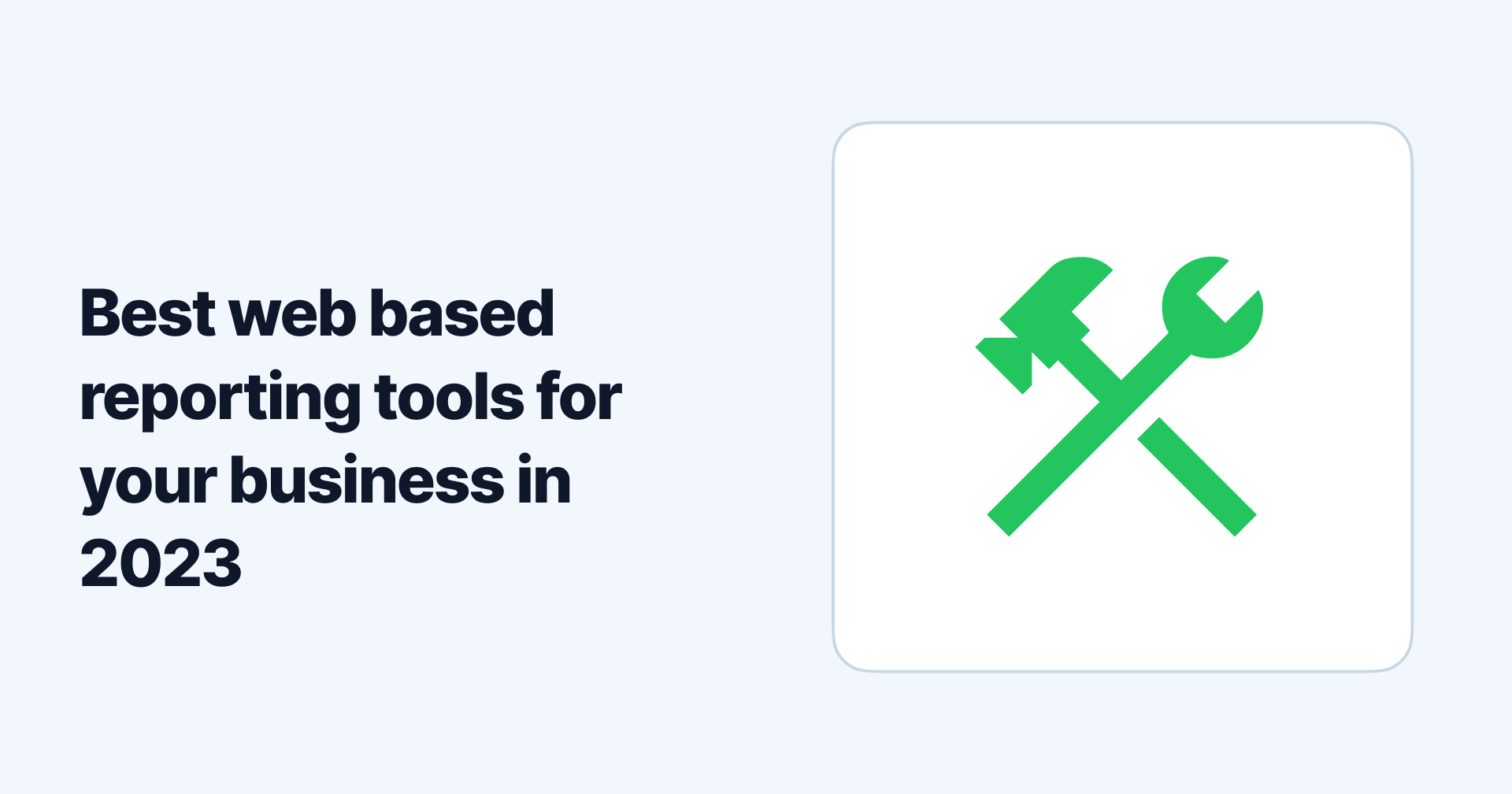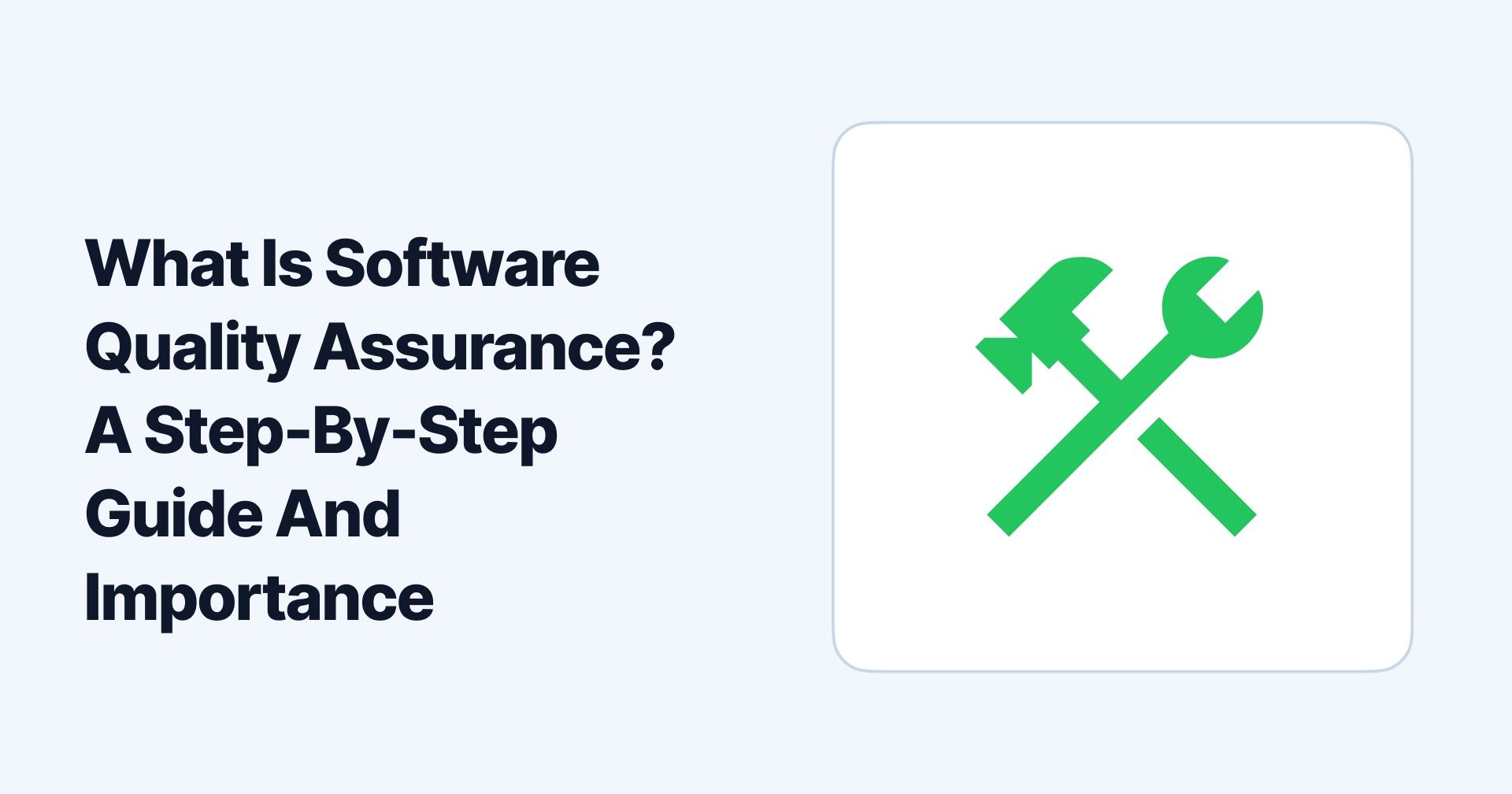In today's data-driven world, selecting the right reporting tool is essential for businesses to make informed decisions and stay ahead of the competition. With many options available, finding the perfect fit for your organization can be challenging.
In this article, we'll explore the top web-based reporting tools for 2023, highlighting their key features and benefits to help you make the best choice for your business.
From small businesses to large enterprises, these tools can streamline reporting processes, provide valuable insights, and foster a culture of data-driven decision-making.
So, let's dive in and discover the best web reporting software that can transform your business in 2023!
What are web based reporting tools?
Web-based reporting tools are interactive software that allows you to track and report on online marketing activities, create rich reports, and demonstrate the value of marketing work to management or clients.

They enable you to create, distribute and manage reports through your web browser. These tools also help the software teams to manage and report on their testing activities.
Web based reporting tools help your team manage their testing and reporting activities efficiently and effectively. These tools provide real-time insights into testing activities, allowing the teams to identify issues quickly and make decisions about the software's quality.
Benefits of web based reporting tools
Web-based reporting tools help you smoothen your software testing processes and provide you with many benefits-
Test Automation:
Test automation enables your software testing teams to run tests more quickly and efficiently than manual testing. This is particularly important for web-based reporting tools, where data must be collected and reported regularly.
And you need test automation in your web-based reporting tools because automated tests are less prone to human error, ensuring that the data collected by web-based reporting tools are accurate and reliable.
This helps teams to make more informed decisions and take appropriate actions based on the data.
Defect Tracking:
Defect tracking is an essential component of web-based reporting tools for software testing. Defect tracking is important because it helps identify and track issues in the software, ensuring they are addressed before the software is released to production.
This leads to higher quality software, improved customer satisfaction, and reduced costs associated with fixing defects after release.
Defect tracking is important because it provides a centralized platform through defect tracking tools for capturing and communicating information about defects. This helps teams communicate more effectively about issues and ensures everyone works towards the same goals.
Collaboration:
Web-based reporting tools enable team members to collaborate more effectively on testing activities. They can share information, test results, and defects and work together to resolve issues.
This helps improve team members' communication and ensures that everyone is working towards the same goals. With collaboration, teams can work more efficiently, reduce rework, and deliver software faster.
Real-time Reporting:
Web-based reporting tools provide real-time reporting and dashboards that give teams insights into their testing activities. Teams can monitor progress, identify bottlenecks, and make informed decisions about software quality.
This helps teams to identify issues earlier in the testing process, which reduces the risk of defects reaching production. With real-time reporting, teams can quickly identify problems and adjust the testing process.
Centralized Management:
Web-based reporting tools provide a centralized location for managing testing activities, including planning, execution, and reporting.
This helps to ensure that all team members are working towards the same goals and that testing activities are consistent across the team. With a centralized tool, it is easier to manage test cases, track testing progress, and identify issues that need to be resolved.
How web based reporting tools work?
Here's how web based reporting tools can work for you;
Test planning: Teams can use web-based reporting tools to plan their testing activities, including defining test cases, creating test plans, and assigning them to team members.
Test execution: Testers can use web-based reporting tools to execute test cases and log defects. These tools often provide integrations with other testing tools, such as test automation, to streamline the testing process.
Test reporting: Web-based reporting tools provide real-time reports on testing activities, allowing teams to identify issues earlier in the testing process.
These reports can be customized to meet the specific needs of the organization and can provide insights into test coverage, defects, and overall software quality.
- Integrations: Web-based reporting tools often integrate with other testing tools, such as test automation tools, continuous integration tools, and defect tracking tools.
These integrations help streamline the testing process and provide a centralized location for testing activities.
Web based reporting tools work by collecting data, analyzing it, presenting it in reports and dashboards, enabling collaboration among team members, and facilitating continuous improvement.
By leveraging the power of data, web-based reporting tools enable software testing teams to make informed decisions about software quality, improve collaboration and communication, and continuously improve their testing processes through web based reporting tools.
Allure TestOps is one such web based tool to help your teams to enable software testing and make, manage and distribute test reports amongst your teams. Allure TestOps is a centralized next-generation software quality management platform that provides automated and manual testing of your software applications. So let's learn more about Allure.
The Only Web based Reporting Tool you require in 2023!
Numerous web-based reporting tools exist in the market, such as Google Analytics 360, Emburse Certify Expense, Germain UX, Reportei, PayPal, and Klipfolio.
However, none of these tools provide a comprehensive feature set, including report management and delivery, web-based administration, easy navigation, data tracking and organization, live connections to external data, and multi-data source reporting.
Allure TestOps fills this gap with its powerful features, offering an all-in-one test management platform focused on automation, DevOps alignment, and seamless integration with over 100 testing frameworks and continuous integration platforms.
This solution empowers teams to manage manual and automated testing efficiently, track tests, report failures, and gain insights into test coverage, ultimately reinforcing and speeding up the CI/CD pipeline.
Let's get to know more about Allure TestOps down below.
AllureTestOps: Streamline the software testing process Now!
Allure TestOps is a Dev-Ops-ready software testing platform built to reduce code time-to-market without losing quality. It integrates a number of features to give you manual as well as automated testing visibility.
Allure TestOps is designed to streamline the software testing process, provide real-time insights into software quality, and facilitate collaboration among your team members.
As a web-based tool, Allure TestOps can be accessed from any device with an internet connection, allowing teams to collaborate and share information effortlessly. Users can view test results and reports, track progress, and analyze test data in real-time.
Allure TestOps also provides customizable dashboards and reports allowing users to visualize their test results and track key metrics such as test coverage, execution time, and test pass rates.
Additionally, Allure TestOps can integrate with various test automation frameworks, including Selenium, Appium, and JUnit. This integration lets users view and analyze test results from multiple frameworks in a centralized location.
Allure TestOps is a web-based reporting tool that provides powerful reporting and analytics capabilities for test automation.
Its customizable dashboards and reports and its ability to integrate with popular test automation frameworks make it an ideal choice for teams looking to improve their testing process and achieve better test coverage.
Features of Allure TestOps
Allure TestOps provides you with many features, some of which I have listed down here for you;
Test Management: Allure TestOps allows users to manage their test cases, test suites, and test plans in one place. Users can create and execute tests, schedule automated tests, and view test results.
Security: Allure TestOps is designed with safety in mind, and it offers features such as encryption, two-factor authentication, and IP whitelisting to keep user data safe.
Integration: Allure TestOps can integrate with various test automation frameworks, including Selenium, Appium, and JUnit. It also supports integrating popular CI/CD tools like Jenkins and GitLab.
Collaboration: Allure TestOps allows users to share test results, reports, and test plans with other team members. Users can also create custom roles and permissions to ensure that team members have the right level of access to the tool.
Test Analytics: Allure TestOps provides powerful analytics and reporting capabilities that allow users to track key metrics such as test execution time, test coverage, and test pass rates. Users can view detailed reports and customized dashboards to gain insights into their testing efforts.
Pricing
Allure TestOps provides you with two types of pricing;
$39/month/user monthly plan or $35/month/user annual plan; at this price point, this plan is for a single user only. But Allure TestOps pricing for this plan subsequently reduces.
It is $39/month/user monthly for the first 1-30 users. $36/month/user monthly for 31-50 users.
This plan includes features like secure AWS hosting, 60 GB included storage, and monthly or annual billing. This plan is hosted on Allure TestsOps's cloud infrastructure.
$30/month plan or $27/month annual plan is meant for a minimum of 5 users, and the pricing decreases subsequently for the following user. Such as $30/month for the first 5-50 users. $20/month for the next 51-100 users.
This plan includes features like private services integration, quarterly or annual billing, and full command over your instance. This plan is hosted on an in-house server.
Allure TestOps also provides additional discounted corporate plans. Contacting their customer support team for the pricing would be better. The minimal Allure TestOps license lasts for three months.
Conclusion
Web-based reporting tools streamline the entire software testing process, from planning and management to execution. These tools enable teams to gather, collaborate on, and analyze data to identify defects in software and applications early in the testing process.
A top-notch web-based reporting tool, such as Allure TestOps, can significantly enhance software quality control and boost development team productivity.
Allure TestOps is a DevOps-ready testing platform designed to optimize the testing process and accelerate software development. As a software quality management platform, it integrates both automated and manual testing, providing a comprehensive solution for your team.
By signing up for Allure TestOps, you can take advantage of its centralized test reporting, seamless integration with over 100 testing frameworks and CI platforms, and smart test cases that auto-update based on test run results tracking and analysis.
Users have praised Allure TestOps for its ability to transform testing approaches, manage flaky tests and defects, and automatically convert manual tests to automated ones upon code submission. So what are you waiting for?



